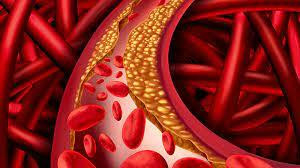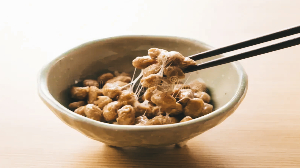Discover a powerful natural remedy for clogged arteries. Learn how natokinase, a fermented enzyme, may help reduce plaque, improve circulation, and support heart health—with fewer side effects than statins.
Introduction: The Growing Concern of Clogged Arteries
Clogged arteries, or atherosclerosis, are a major contributor to heart disease—the world’s leading cause of death. Characterized by the buildup of plaque within arterial walls, this condition reduces blood flow and increases the risk of heart attacks and strokes. While conventional medications like statins are widely prescribed, many are now seeking natural remedies that address the root causes of arterial plaque without unwanted side effects.
One such promising natural agent is natokinase, an enzyme derived from fermented soybeans (natto), which has shown remarkable benefits in supporting cardiovascular health.
What Are Clogged Arteries?
Clogged arteries occur when plaque accumulates on the inner walls of blood vessels. This plaque is made up of:
Fibrin: A fibrous protein involved in blood clotting
Calcium deposits
Cholesterol (particularly oxidized LDL)
Cellular waste and inflammatory cells
As plaque builds up, arteries become narrow and stiff, reducing blood flow and increasing blood pressure. Chronic inflammation often plays a critical role in the development and progression of atherosclerosis.

Why a Natural Remedy Is Needed
While statins and other pharmaceutical options have their place in medical treatment, they come with notable side effects and do not fully address the underlying inflammatory processes or oxidative damage driving plaque formation.
Key goals of effective natural remedies include:
Reducing oxidized LDL cholesterol
Breaking down fibrin and clots
Minimizing arterial inflammation
Supporting vascular flexibility and circulation
Doing so safely and effectively, without long-term health risks
The Limitations of Statin Therapy
Statins are prescribed widely to lower cholesterol and reduce cardiovascular risk. However, a critical review of clinical data shows that:
A study involving 2,000 people over age 50 claimed a 50% reduction in heart attacks, but the absolute risk reduction was only 1%.
Many patients experience side effects such as:
Muscle pain (myopathy)
Low testosterone and erectile dysfunction
Neuropathy and memory loss
Hemorrhagic stroke risk
Potential links to certain cancers
This raises concern about overreliance on statins, especially when natural alternatives may offer comparable benefits with fewer drawbacks.
Natokinase: A Natural Enzyme With Powerful Cardiovascular Benefits
Natokinase is a potent enzyme extracted from natto, a traditional Japanese fermented soybean dish. Used for over 2,000 years, it has gained attention in modern research for its unique cardiovascular properties.

Scientific Highlights:
Breaks down fibrin: Prevents and dissolves blood clots
Reduces thrombosis risk: One study showed an 88% decrease in clot formation within 6 hours
Supports nasal and systemic inflammation reduction
Improves blood circulation and vessel health
Its ability to target fibrin and oxidized LDL makes natokinase especially effective in addressing the root causes of arterial plaque.
Cardiovascular Benefits of Natokinase
Let’s dive deeper into the health-promoting effects of natokinase:
Dissolves Fibrin Clots
By enzymatically breaking down fibrin, natokinase helps prevent clots that can block arteries or trigger heart attacks and strokes.
Reduces Oxidative LDL
Oxidized LDL is particularly damaging to arterial walls. Natokinase helps reduce this pathogenic cholesterol, protecting the endothelium.
Anti-Inflammatory Properties
Chronic inflammation contributes to plaque formation. Natokinase’s anti-inflammatory effects may slow or reverse plaque development.
Improves Lipid Profile
Some studies suggest it may help:
Raise HDL (“good”) cholesterol
Lower triglycerides
Improve blood pressure regulation
Supports Brain and Vascular Health
A 2004 study showed improved circulation and reduced stroke risk. Animal studies also suggest that combining natokinase with ginseng may help shrink plaque.
Safety Profile of Natokinase
Unlike pharmaceutical drugs, natokinase is well-tolerated with minimal adverse effects when used appropriately. It does not carry the same risks of muscle damage, hormone disruption, or neurological side effects seen with statins.
However, it is still important to:
Avoid use with blood-thinning medications (unless supervised)
Consult a healthcare provider before starting, especially for those with bleeding disorders or upcoming surgeries
The Role of Vitamin K2 in Arterial Health
Another vital nutrient in cardiovascular health is Vitamin K2, which supports calcium regulation in the body. K2 helps:
Prevent calcium deposits in arteries
Direct calcium to the bones, where it belongs
Combined with natokinase, vitamin K2 can form a powerful duo for preventing arterial calcification and maintaining vessel flexibility.
Frequently Asked Questions (FAQs)
Q1: What causes clogged arteries?
Clogged arteries typically result from chronic inflammation, oxidized LDL cholesterol, high sugar intake, smoking, and unhealthy fats—especially excessive omega-6 oils.
Q2: How does natokinase work?
Natokinase breaks down fibrin, helping to dissolve existing clots and preventing new ones from forming. It also reduces oxidative stress and inflammation.
Q3: Are there side effects of natokinase?
Natokinase has minimal side effects, especially compared to statins. Caution is advised if you are already on anticoagulants.
Q4: What other health benefits does natokinase provide?
Beyond heart health, it may help:
Lower blood pressure
Improve cholesterol balance
Reduce stroke risk
Enhance blood flow to the brain and extremities
Q5: What role does vitamin K2 play in heart health?
Vitamin K2 helps prevent arterial calcification by guiding calcium to bones and away from blood vessels, working synergistically with natokinase.
Final Thoughts
While clogged arteries remain a serious health issue, natural options like natokinase offer a promising alternative to traditional pharmaceutical approaches. Its fibrin-dissolving, anti-inflammatory, and cholesterol-modulating properties make it a compelling natural remedy to consider, especially when combined with supportive nutrients like vitamin K2.
